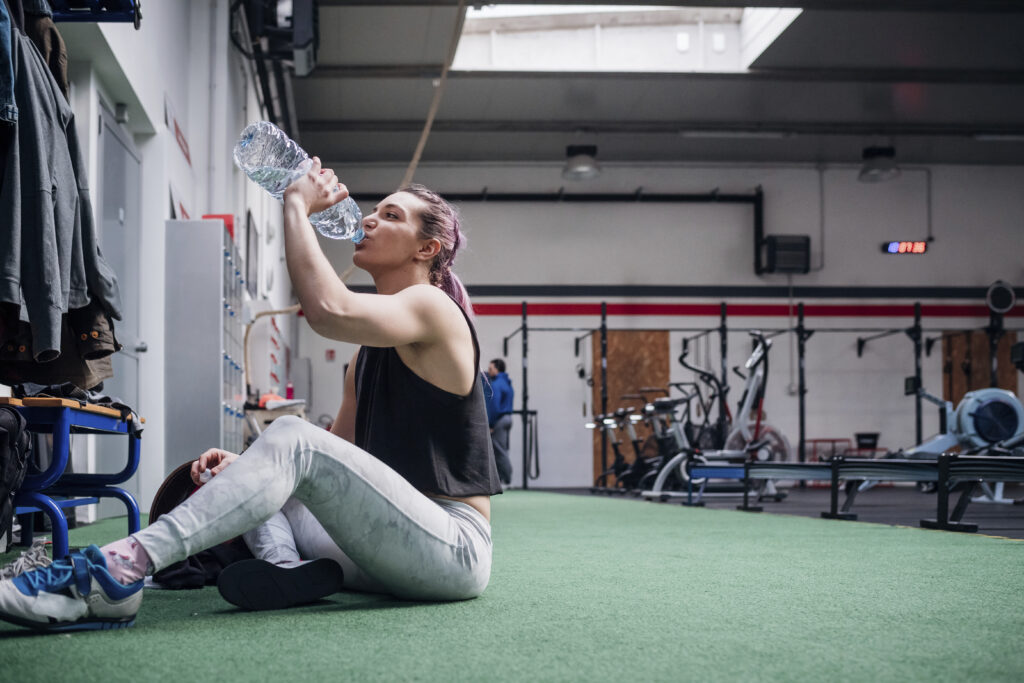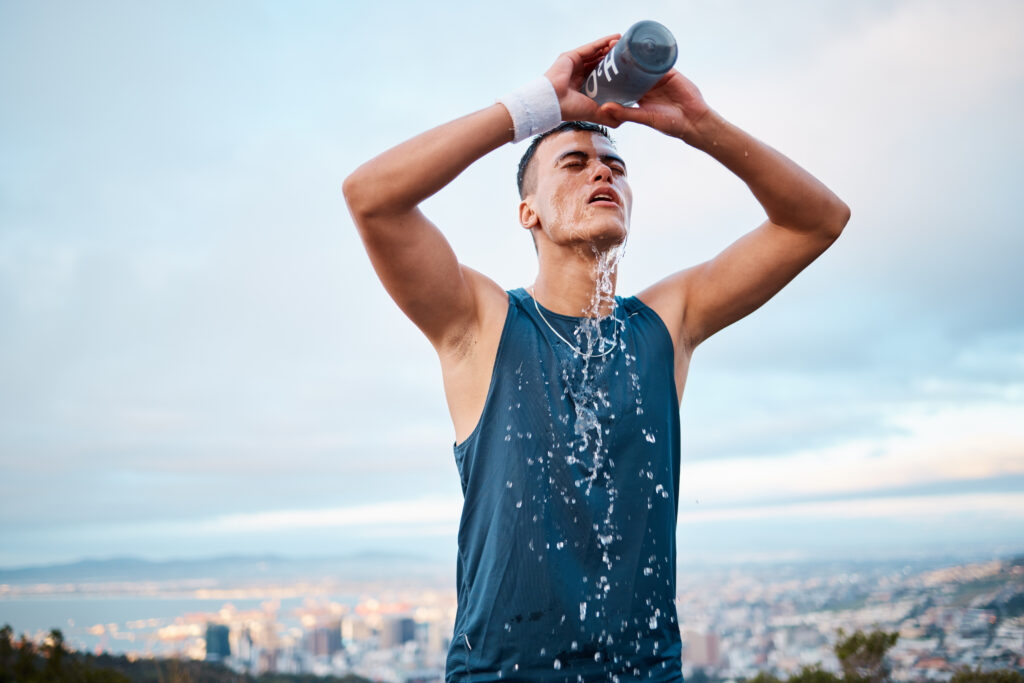Water is often the unsung hero in the world of fitness. While we’re quick to celebrate the latest protein powder or training regimen, we often overlook the crucial role that proper hydration plays in our performance, recovery, and overall well-being. For athletes, especially those in powerlifting, the effects of water intake extend far beyond quenching thirst.
Water and Strength: Boosting Power and Performance in Powerlifting
When it comes to strength, hydration is essential for optimizing performance during high-intensity training sessions. Powerlifters require immense amounts of energy to lift heavy weights, and the body relies on water to fuel various processes that contribute to that energy.
- Muscle Contraction: Hydrated muscles can contract more efficiently. Dehydration, on the other hand, can lead to cramping and decreased muscle function, reducing strength output. Proper hydration ensures your muscles can generate the force required for maximum lifts.
- Joint Lubrication: Powerlifting puts a lot of stress on your joints, and water is a key component in lubricating and cushioning them. Sufficient hydration prevents joint stiffness and discomfort, allowing for smoother, more controlled movements during lifts.
- Blood Circulation: Water is essential for maintaining proper blood circulation, which is critical for delivering nutrients to muscles during intense training. This helps support optimal performance by ensuring muscles get the oxygen and nutrients they need to perform at their best.

Water and Fat Loss: Enhancing Metabolism and Appetite Regulation
Hydration is often overlooked when it comes to fat loss, but water can be a powerful ally in your weight loss journey.
- Boosting Metabolism: Drinking water, especially cold water, can increase your metabolism. Your body works harder to bring the temperature of the water to body temperature, which can temporarily boost your metabolic rate by up to 30%. This metabolic boost can help you burn more calories throughout the day, aiding in fat loss.
- Appetite Control: Dehydration is sometimes confused with hunger, leading to overeating. Drinking water before meals can help you feel full and reduce the tendency to overeat, making it easier to maintain a calorie deficit.
- Fat Transport: Water aids in the transport of fat-soluble nutrients and byproducts of fat breakdown. When you’re losing fat, your body is constantly working to eliminate waste products. Adequate hydration helps flush out these byproducts, improving fat loss efficiency.
Water and Muscle Building: Supporting Growth and Recovery
Muscle building is not just about lifting weights and eating protein—it’s also about recovery and the body’s ability to repair itself.
- Protein Synthesis: Water is involved in the process of protein synthesis, where your body repairs and builds new muscle fibers. Adequate hydration ensures that the necessary nutrients reach muscle cells and that the muscle repair process occurs more efficiently.
- Nutrient Transport: Hydrated muscle cells are better equipped to absorb nutrients like amino acids and glucose, which are necessary for muscle growth. Without enough water, nutrient transport becomes less efficient, which can hinder muscle repair and growth.
- Recovery and Reducing Muscle Soreness: After a tough lifting session, staying hydrated helps reduce muscle soreness (DOMS), as water helps remove lactic acid build-up and other metabolic waste products from the muscles. This allows for faster recovery, enabling you to get back to training with minimal downtime.
Water and Brain Function: Enhancing Focus and Mental Clarity
In powerlifting, mental focus is just as important as physical strength. Hydration has a direct impact on brain function, which is essential for optimal performance both in and out of the gym:
- Cognitive Function: Even mild dehydration can impair cognitive abilities such as concentration, focus, and decision-making. For a powerlifter, the mental aspect of training—like staying focused during heavy lifts—can be the difference between success and failure. Proper hydration helps maintain clarity and mental sharpness during intense workouts.
- Mood and Motivation: Dehydration can lead to irritability, fatigue, and decreased motivation, which can negatively impact your training consistency. Staying hydrated can help regulate your mood and energy levels, allowing you to stay positive and motivated in your lifting routine.
- Reaction Time: Staying well-hydrated helps maintain your reaction time, which can be important during certain lifts or when executing precise movements. Dehydration can slow down your reaction time, making it harder to maintain proper form and avoid injury.

Other Benefits of Staying Hydrated
Beyond the main factors of strength, fat loss, and muscle building, hydration offers several other benefits that can support your overall fitness journey:
- Improved Sleep: Dehydration can lead to disturbed sleep patterns, which are crucial for recovery and muscle growth. By staying hydrated, you ensure better quality sleep, which enhances overall recovery and performance.
- Detoxification: Water helps the body flush out toxins, keeping your system clean and functioning optimally. As you lift heavy and push your body to its limits, keeping your internal system clean is important for long-term health.
- Electrolyte Balance: Electrolytes, which help regulate muscle function, are often lost through sweat. Drinking water, especially after intense lifting sessions, helps replenish these electrolytes and maintain a proper balance, reducing the risk of muscle cramps and weakness.
How Much Water Do You Need?
While individual water needs vary, a general guideline for powerlifters is to drink about 3-4 liters (100-135 ounces) of water per day, depending on body weight, training intensity, and climate. It’s essential to drink water consistently throughout the day, not just during workouts. Additionally, consider increasing your water intake during intense training sessions, hot weather, or when you’re eating high-protein meals.
Overlooked
Proper hydration is an often overlooked but crucial factor in optimizing strength, muscle building, fat loss, brain function, and overall athletic performance. As a powerlifter, staying hydrated can give you a significant edge in your training and recovery, ultimately helping you to reach your peak performance. So next time you pick up a water bottle, remember that hydration is not just about quenching your thirst—it’s about fueling your body for success. Drink up, and break PR’s.
